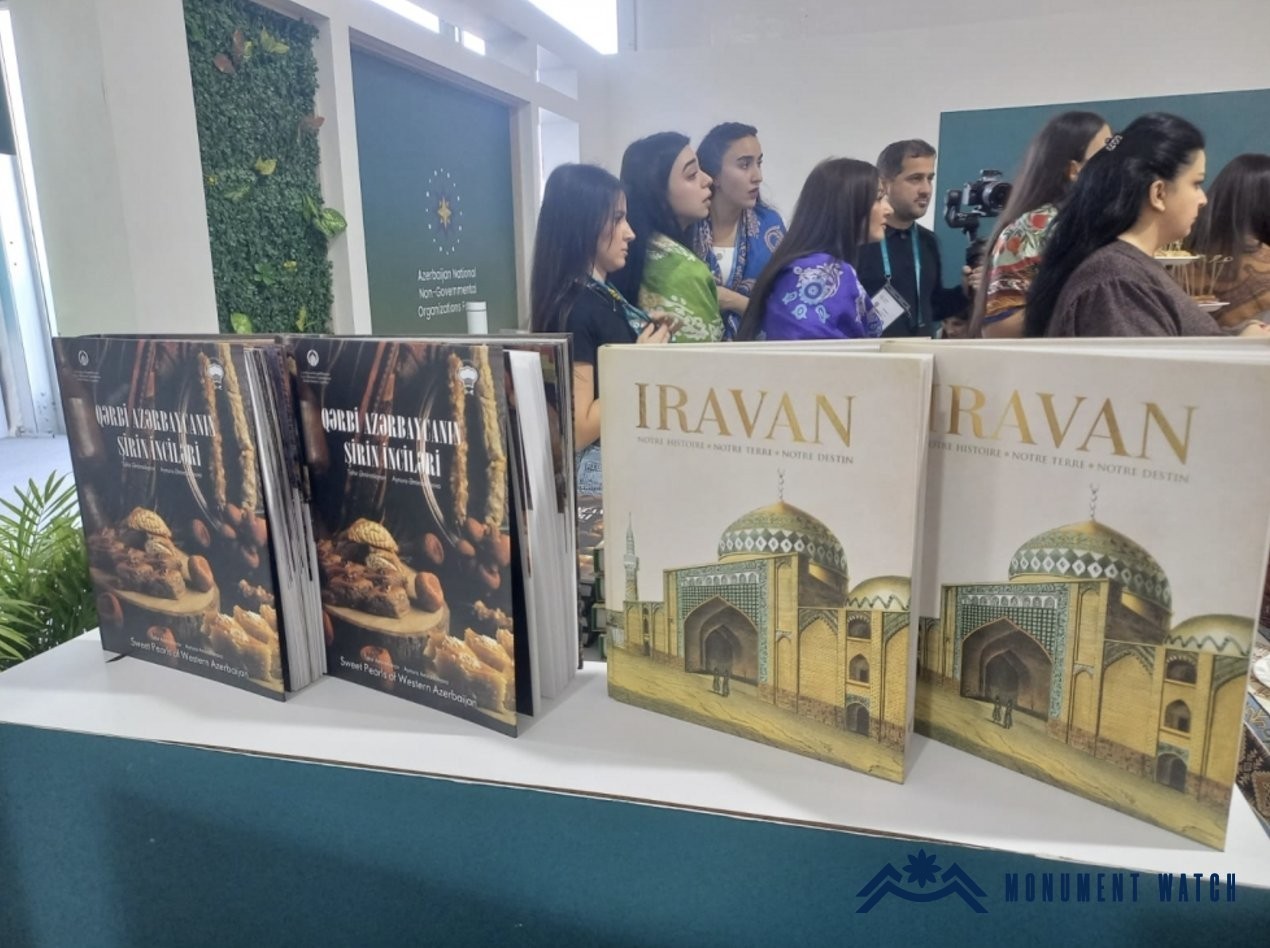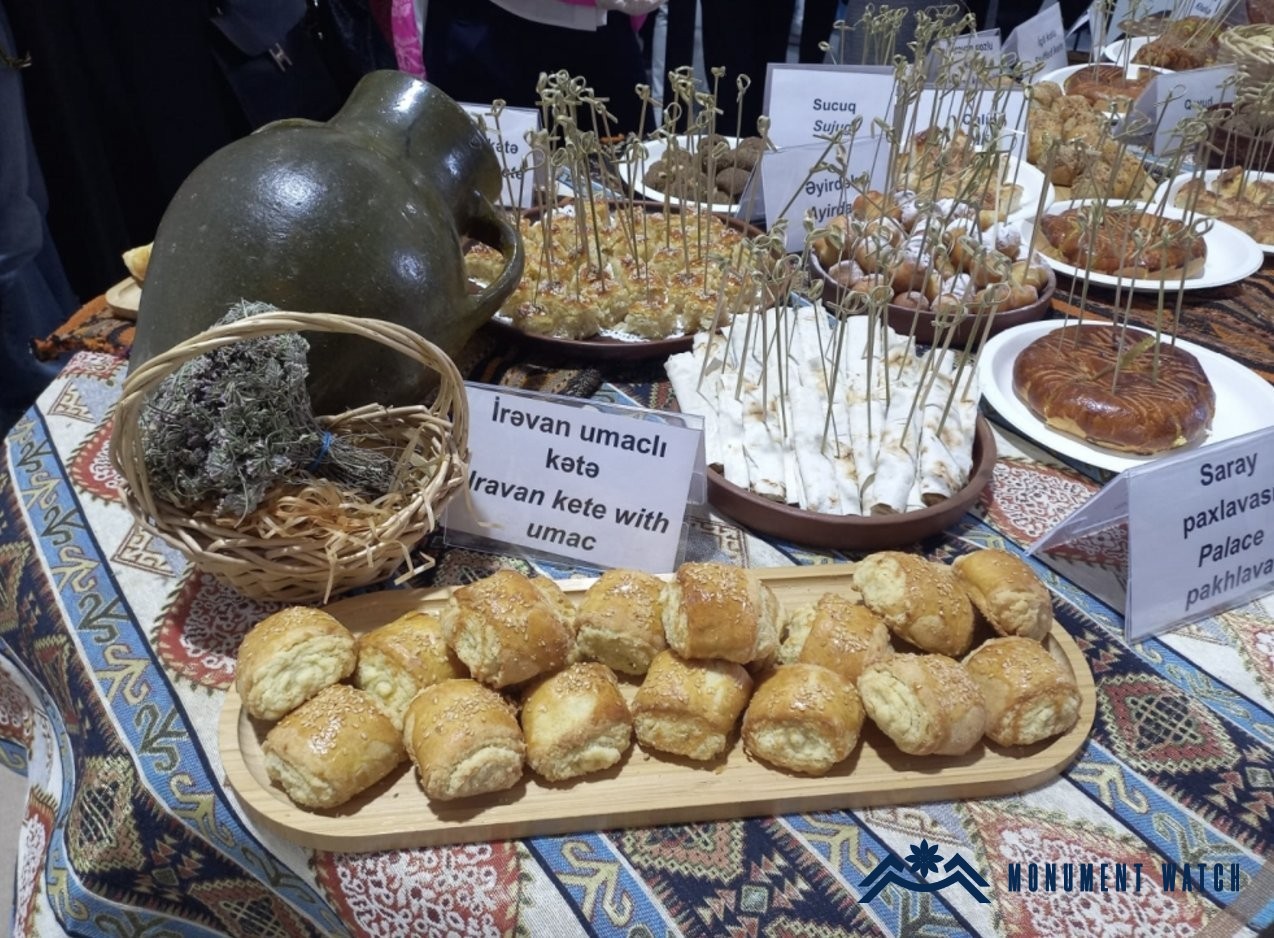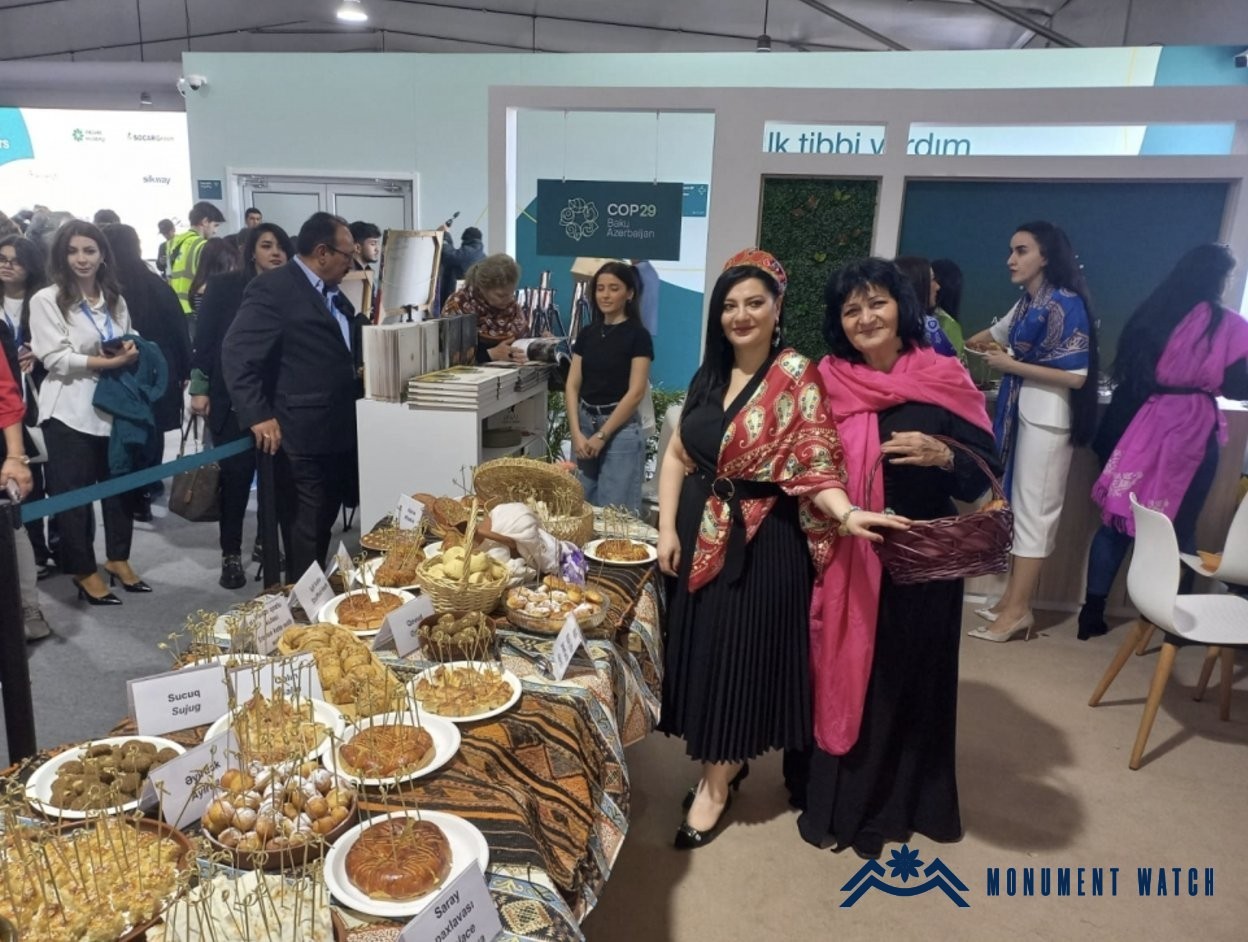State measures for appropriation of Armenian culture by Azerbaijan continue
Recently, Azerbaijan has intensified its targeted campaign against the sovereign territory of the Republic of Armenia, striving to “legitimize” territorial claims and to direct new methods for appropriating Armenian cultural heritage through a series of cultural events. These efforts target both tangible and intangible heritage, as well as Armenian history and identity. One illustrative instance is the exhibition opened on November 22, 2024, within the framework of COP29, which showcased cuisine from the fictitious “Western Azerbaijan” region-thereby distorting and presenting Armenian cuisine and culture under an Azerbaijani name (https://x.com/LindseySnell/status/1860263802983387389/photo/3)։
It should be recalled that in the Azerbaijani political lexicon, “Western Azerbaijan” refers to the entire territory of the present-day Republic of Armenia. Alongside these exhibition events, another example of the ongoing appropriation of Armenian identity is the presentation of a book about Yerevan, referred to by Azerbaijani sources as Irevan, which, according to Azerbaijani political narratives, is portrayed as an Azerbaijani city https://www.instagram.com/lindseysnell/p/DCtcYptteYS/?img_index=3.
It is worth noting that COP29 is the 29th Conference of the Parties to the United Nations Framework Convention on Climate Change (UNFCCC), held from November 11 to 22, 2024, in Azerbaijan. Despite the conference’s focus on combating global warming and implementing climate policy, Azerbaijan repeatedly used the occasion to advance false narratives aimed at appropriating Armenian territories and culture during various international gatherings and discussions.
Such events are ongoing. A prior instance took place in Nakhichevan on June 21-22, within the framework of the ethnographic festival conference entitled “Return to Western Azerbaijan.”
Our Response
In parallel with the policy of depopulating Armenians, committing genocide against them in their historical homeland, and enforcing forced deportation, Azerbaijan continues to pursue territorial, historical, and cultural claims over the sovereign territory of the Republic of Armenia - an area that constitutes the historical homeland of the Armenian people and embodies their cultural heritage.
(For more on the false claims associated with the term “Western Azerbaijan,” see: A new endeavor to appropriate Armenian historical and cultural heritage has emerged: the inauguration of “West Azerbaijan” state television in Baku,https://monumentwatch.org/en/alerts/a-new-endeavor-to-appropriate-armenian-historical-and-cultural-heritage-has-emerged-the-inauguration-of-west-azerbaijan-state-television-in-baku/, The organization known as the “Community of Western Azerbaijan” has appealed to UNESCO, urging to safeguard the cultural heritage of “Western Azerbaijan”,https://monumentwatch.org/en/alerts/the-organization-known-as-the-community-of-western-azerbaijan-has-appealed-to-unesco-urging-to-safeguard-the-cultural-heritage-of-western-azerbaijan/, Azerbaijan declares Yerevan, Sevan and Syunik “Azerbaijani heritage”, https://monumentwatch.org/en/alerts/azerbaijan-declares-yerevan-sevan-and-syunik-azerbaijani-heritage/). Further analysis of the newly invented term “Western Azerbaijan” can be found in the following article by Ruben Galichyan: https://monumentwatch.org/wp-content/uploads/2023/12/Text-and-Maps-in-Armenian.pdf.)


